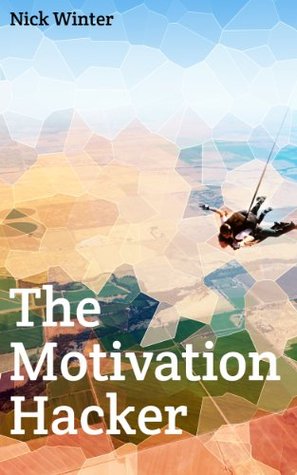More on this book
Community
Kindle Notes & Highlights
“To burn always with this hard, gem-like flame, to maintain this ecstasy, is success in life.”
What had I done in the last three months?
And just as the chef who dogmatically used his chef’s knife for everything would cook a terrible pancake, so would a motivation hacker fail to quit an internet addiction using only precommitment. No single technique can solve every problem.
More motivation doesn’t just mean that we’re more likely to succeed at a task, but also that we’ll have more fun doing it.
Hack like this: first pick your goals, then figure out which motivation hacks to use on the subtasks that lead to those goals—and then use far more of them than you need, so that you not only succeed, but that you do so with excitement, with joy, with extra verve and a hunger for the next goal.
Maybe there are no people without big dreams, just people with their eyes shut.
Here is the motivation equation[13]:
Motivation is what you always want more of: fire, energy, excitement! It’s that which drives you to act, to achieve your goals.
Expectancy is your confidence of success. When you’re sure you can win (high Expectancy), motivation is high.
Value is both how rewarding a task will be when you finish it and how fun it is while you’re doing it.
Impulsiveness can be thought of as distractibility: how likely you are to put a task off and do something more pressing.
Delay is how far off the reward seems to be. This is often hard to manipulate directly: rewards are often delayed so far that we hyperbolically discount[14] them into worthlessness.
By increasing Expectancy or Value, or decreasing Impulsiveness or Delay, you hack motivation.
The biggest hack a motivation hacker can perform is to build her confidence to the size of a volcano. An oversized eruption of Expectancy can incinerate all obstacles in the path to any goal when you combine it with good planning.
The motivation hacker learns to steer his life towards higher Value and to have fun demolishing boring necessities in his way.
It takes superhuman effort to focus on a task when you’re surrounded by distractions. But when you remove distractions in advance, no such effort is required: concentration flows. The motivation hacker learns to anticipate and eliminate distractions and temptations, making it trivial to follow through with her plans.
The motivation hacker learns to structure goals so that the perceived Delay is not so great. Intermediate milestones, process-based goals, and willfully optimistic planning are his tools here. With the right mindset, success is ever right around the corner.
That is, will is simply the process of making personal rules for ourselves that will help us reach our goals, and how much willpower we can muster is precisely how good we are at setting up these personal rules so that the we always prefer to keep our rules than to break them. This is a learnable skill.
The important part is to never weasel out of doing what you said you’d do.
The tip which worked for me was to focus on input-based process goals (write for five minutes) rather than output-based results goals (write one page), and to keep the required inputs minuscule at first.
To precommit is to choose now to limit your options later, preventing yourself from making the wrong choice in the face of temptation. Publicly announcing your goal is a common form of precommitment.
One specific technique for precommitment is where you disable, remove, or destroy a distraction or temptation. I call it “Burning the Ships”
But it’s plausible that life is better seen through eyes than shoes and horizons,
“Time is the coin of your life. It is the only coin you have, and only you can determine how it will be spent. Be careful, lest you let other people spend it for you.”
The goals you choose should do the same: they should drench you in Value and then ignite you.
First-time startup founders underestimate the difficulty of creating something great.
We thought every new feature would catapult us into prosperity (only one of hundreds did: auto-renewing credit card subscriptions),
Plan for the worst and hope for the best. Start your success spirals small enough so that you’re guaranteed to win, even if everything goes wrong.
Stopping after you reach a goal is better than stopping before you start, during your pursuit, or never.
Success Spirals. Set yourself a series of achievable goals and then achieve all of them until you expect only success and failure is no longer familiar.
Find Meaning. Look for ways to connect tasks with major life goals, so that you can remind yourself why you’re doing what you’re doing.
Set CSI Approach Goals. SMART goals are out, and Challenging, Specific, Immediate, and Approach (not avoidance) goals are in.
Focus on Passion. Know what you’re passionate about, and steer your life towards those passions. Ask if your common tasks are connected to passion; ask if they’re intrinsically motivating.
Precommitment. Choose now to limit your later options, preventing yourself from making the wrong choice in the face of temptation.
Burnt Ships. A specific form of precommitment where you disable, remove, or destroy a distraction or temptation.


